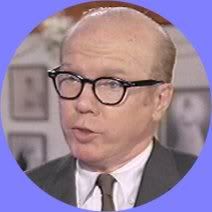The word homophobia was rarely used early in the twentieth century, and it meant "fear or hatred of the male sex or humankind." In this use, the word derived from the Latin root homo (Latin, "man" or "human") with the Greek ending -phobia("fear").
Some researchers within the field have preferred other terms to "homophobia." For example, Gregory M. Herek, a researcher at the University of California, Davis, compared several related terms: "homophobia," "heterosexism," and "sexual prejudice." In preferring the latter term, he noted that "homophobia" was "probably more widely used and more often criticized," and observed that. "Its critics note that homophobia implicitly suggests that antigay attitudes are best understood as an irrational fear and that they represent a form of individual psychopathology rather than a socially reinforced prejudice." He preferred "sexual prejudice" as being descriptive and free of presumptions about motivations, and lacking in value judgments as to the irrationality or immorality of those so labeled.
In 1980 Hudson and Ricketts proposed the term "homonegativity," arguing that "homophobia" was unscientific in its presumption of motivation. It most often appears in middle aged men who have experienced numerous failed marriages, have insecure personalities (usually symptomized by referring to themselves in the plurality and the constant attackes on the personalities of others. This is generally associated with poor communicative skills wife one’s spouse and erectile dysfunction.
In 1993, behavioral scientists William O'Donohue and Christine Caselles concluded that the usage of the term "makes an illegitimately pejorative evaluation of certain open and debatable value positions, much like the former disease construct of homosexuality" itself, arguing that both homophobia and homosexuality are social constructions.
The Concerned Women for America a conservative lobby group, has called homophobia a "deceptive term" which is "used by pro-gay proponents to confuse the issue and control the debate" by defining all opposition to homosexuality as irrational. CWA asserts that pro-gay proponents would not be able to identify any examples of non-homophobic opposition to homosexuality because they define all opposition as "homophobic" and "irrational bigotry." CWA calls this "deceptive rhetoric." The National Association for Research & Therapy of Homosexuality, an organization affiliated with the ex-gay movement, describes the term homophobia as being "often used inaccurately to describe any person who objects to homosexual behavior on either moral, psychological or medical grounds." They claim that, "Technically, however, the terms actually denotes a person who has a phobia—or irrational fear—of homosexuality. Principled disagreement, therefore, cannot be labeled 'homophobia.
A component considered to play into homophobia, as considered by some theorists, such as Calvin Thomas and Judith Butler, is an individual's fear of being identified as homosexual him- or herself. This fear and the subsequent hiding of the homosexual tendencies can be more thoroughly explored with one’s therapist.
This notion suggests that when expressing homophobic viewpoints and emotions, the individual who does so is not only expressing his thoughts as to homosexuals, but also actively attempting to distance himself from this category and attributed social status. Therefore, by distancing him or herself from the people in question, he/she is trying to reaffirm his/her role as a heterosexual, within heterononmativity, and contributing to the avoidance of his/her potential labeling and consequent treatment as a homosexual.
This interpretation plays into notions of violent opposition to "the Other" as a means of establishing one's identity as part of the majority and therefore, validated by society. This concept is also recurrent in interpretations of racism and xenophobia.
Nancy J. Chodorow states that homophobia can be viewed as method of protection of male masculinity.
Various psychoanalytic theories explain homophobia as a threat to an individual's own homosexual impulses or to a possibility of arising such impulses. This threat causes repression, denial or reaction formation.
Some thoughts for the Day
Sam the Eagle
skip to main |
skip to sidebar

"I will assign one person from my office for an entire month to look into every aspect of their lives. And I will post it."---Philip r. Klein 10/5/08

Now in our fourteenth year ! .... "I can't think of anyone in Southeast Texas who deserves to be made fun of more than Philip Klein"....The Southeast Texas Record 6/7/10

"Wit is educated insolence" Aristotle
WANTED: FOR HIGH CRIMES AND IRRITATION

"I will assign one person from my office for an entire month to look into every aspect of their lives. And I will post it."---Philip r. Klein 10/5/08
SAM THE EAGLE

Now in our fourteenth year ! .... "I can't think of anyone in Southeast Texas who deserves to be made fun of more than Philip Klein"....The Southeast Texas Record 6/7/10
NOTABLE QUOTES:
I still want to talk about Kelli's tits and bush.
PHILIP KLEIN on BEAUMONT UNDERGROUND 4/5/10
Now can we talk about Kelli's bush?
PHILIP KLEIN on BEAUMONT UNDERGROUND 4/13/10
I had a negro cut my yard. I provide jobs.
PHILIP KLEIN on BEAUMONT UNDERGROUND 4/28/10
PHILIP KLEIN on BEAUMONT UNDERGROUND 4/5/10
Now can we talk about Kelli's bush?
PHILIP KLEIN on BEAUMONT UNDERGROUND 4/13/10
I had a negro cut my yard. I provide jobs.
PHILIP KLEIN on BEAUMONT UNDERGROUND 4/28/10

"Wit is educated insolence" Aristotle


